
Evolution claims that all species, even humans have common ancestry. DNA totally disagrees. Do these animals look related to each other? To us?
And God said, “Let the waters swarm with swarms of living creatures, and let birds fly above the earth across the expanse of the heavens.” So God created the great sea creatures and every living creature that moves, with which the waters swarm, according to their kinds, and every winged bird according to its kind. And God saw that it was good.
Genesis 1:20-21
Amazing Creeping Things
Venezualan Poodle Moth

Discovered in Venezuela in 2009, this new species of alien-looking moth has poodle-like fur covering its head, thorax, abdomen, and even its wings.
Satanic Leaf-Tailed Gecko
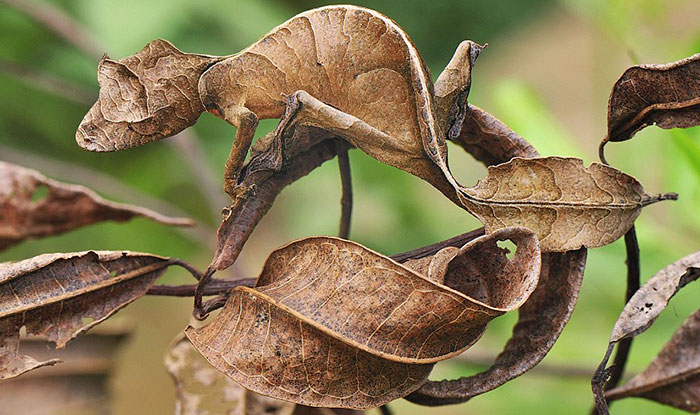
Satanic leaf-tailed gecko is a species of gecko that is found on the island of Madagascar. Their tail is flattened and appears to look like a leaf, helping the animal blend in within the environment.
Umbonia Spinosa
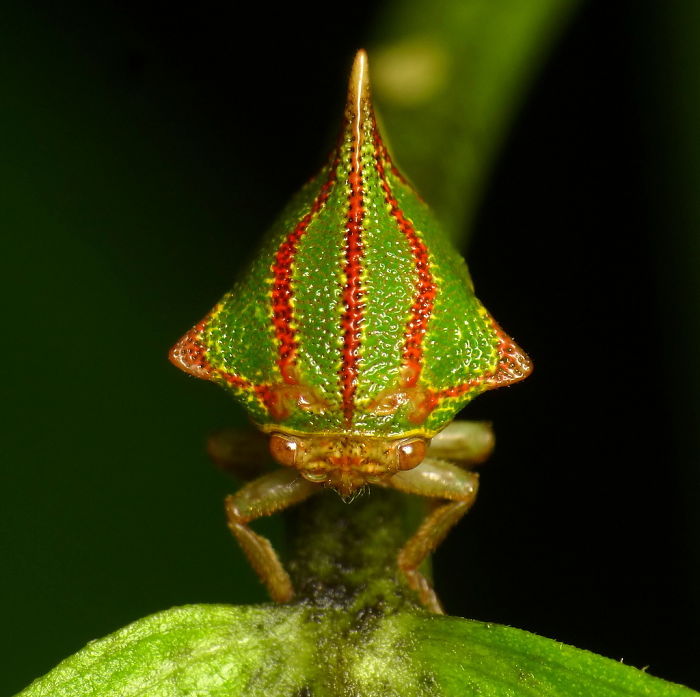
Umbonia spinosa is a type of thorn bug, native to South America. They use their beaks to pierce plant stems to feed upon their sap.
The Picasso Moth
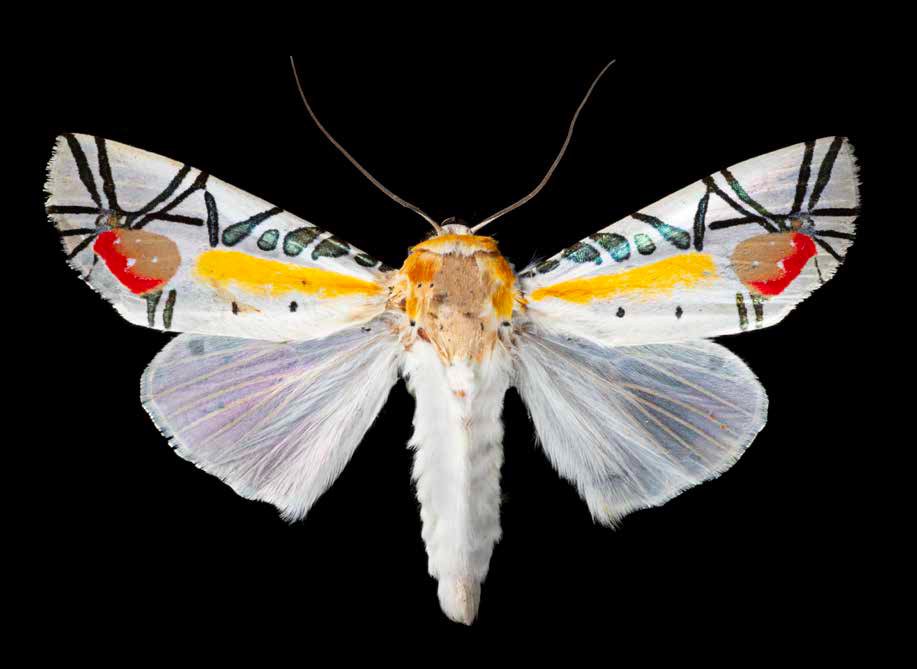
Baorisa hieroglyphica or Picasso Moth is found in parts of northeastern India.
Red Spotted Jewel Beetle
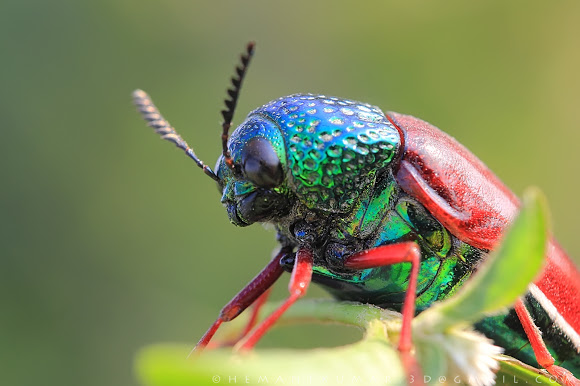
Buprestidae is a family of beetle known as Jewel Beetles or metallic wood boring beetles. The family is among the largest of the beetles with some 15,500 species.
Panda Ant

Despite looking like an ant and being referred as such, it is in fact a form of wingless wasp. This insect is also known as cow-killer. Females possess thicker fur but lack wings. The furry Panda Ant lives for about 2 years.
Sparklemuffin Spider
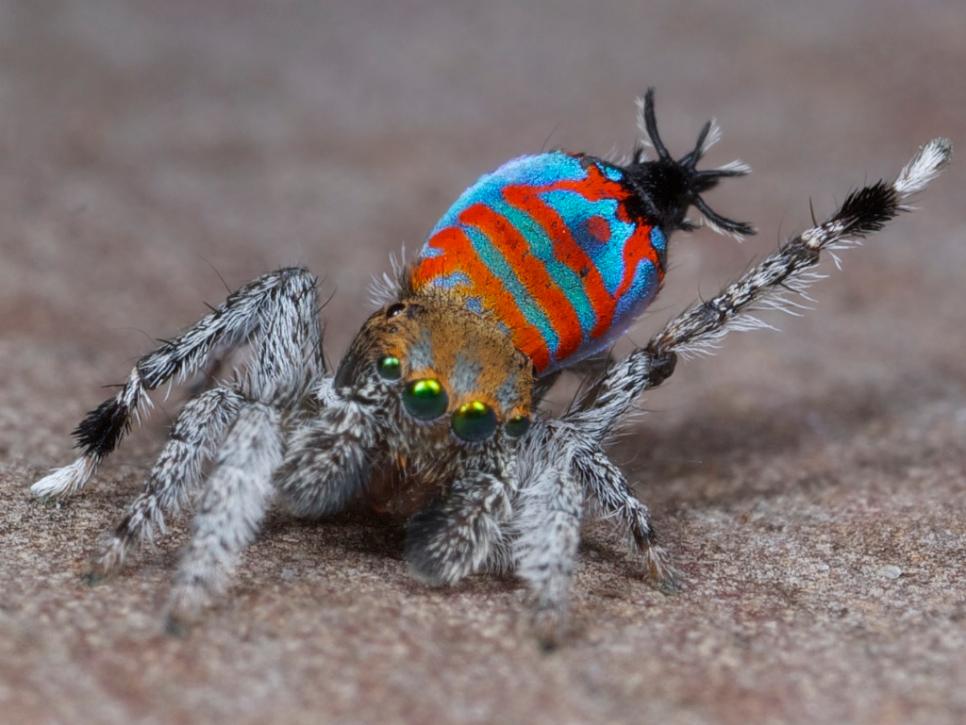
This Australian Peacock Spider was discovered inside the woodland forests of Wondul National Park, near Brisbane, in 2015. Scientifically named maratus jactatus, sparklemuffin earned its colloquial name from University of California researcher Madeline Girard, who discovered the species.
Golden Tortoise Beetle
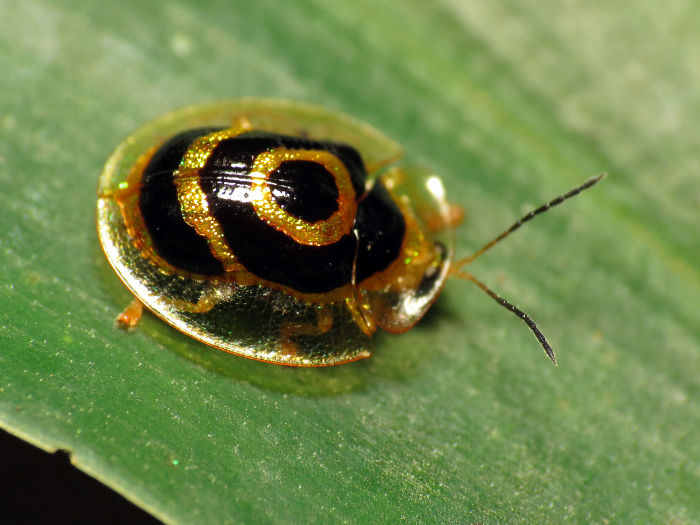
Native to the Americas, the Golden Tortoise Beetle is a species of beetle that varies in color from reddish-brown with black spots through gold, and often metallic, earning it the nickname “goldbug”.
Jumping Spider
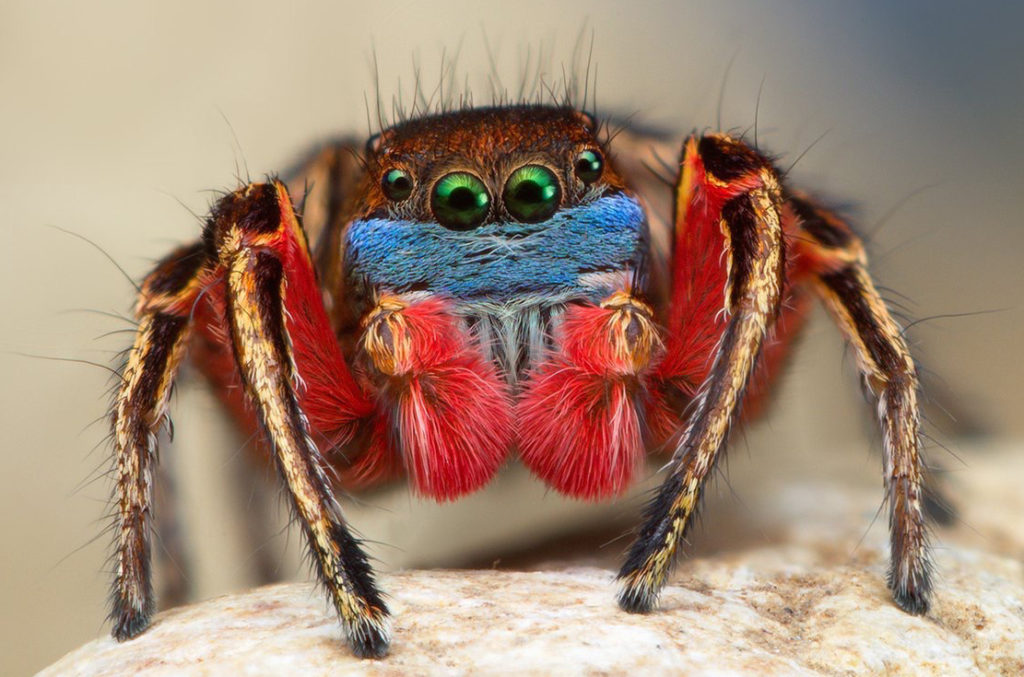
Jumping Spiders are a group of spiders that constitute the family Salticidae. As of 2019, this family contained over 600 described genera and over 6000 described species, making it the largest family of spiders Wikipedia
The Violin Beetle
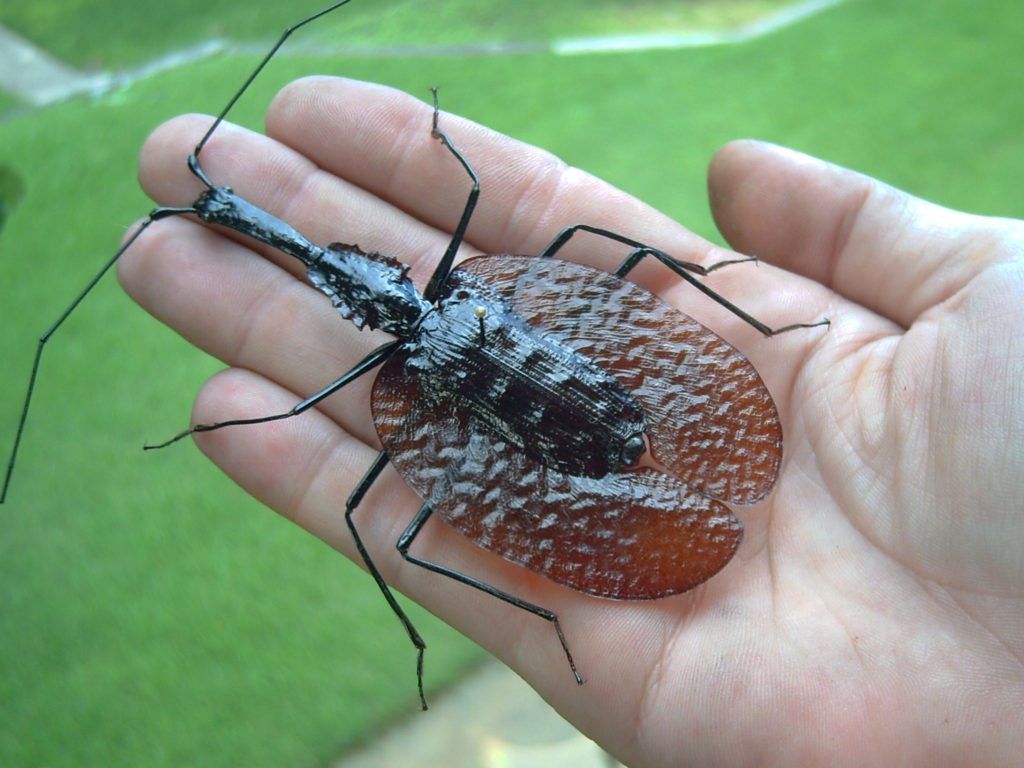
Violin beetles or banjo beetles are ground beetles in the subfamily Lebiinae. They all possess distinctive violin-shaped elytra and live between layers of bracket fungi.
Amazing Fact :
In the world, some 900 thousand different kinds of living insects are known. Most authorities agree that there are more insect species that named by science than there are insect species that have been previously named. Estimates suggest that this figure is 2 million, but some estimates extend to 30 million.
Smithsonian
Animals That Defy Imagination
Mata Mata (Genus: Chelus) Amazon
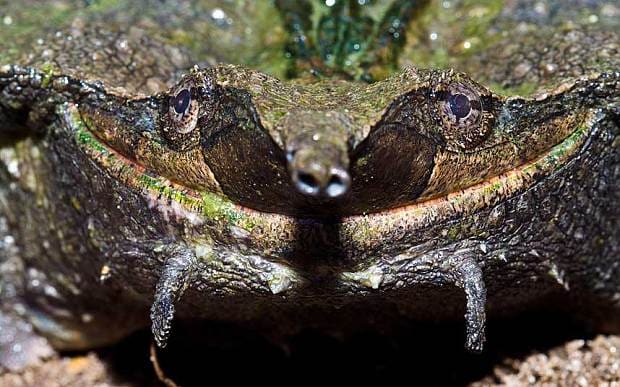
The mata mata, is a freshwater turtle found in Pico Rivera Wetlands South America, primarily in the Amazon and Orinoco basins
Lowland Streaked Tenrec (Genus: Hemicentetes) Madagascar
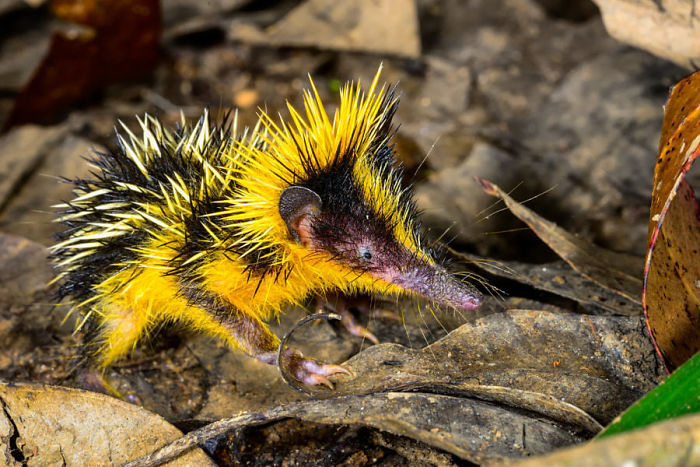
Found in Madagascar, Africa, this small Tenrec is the only mammal known to use stridulation for generating sound – something that’s usually associated with snakes and insects.
Okapi (Genus: Okapia) Africa
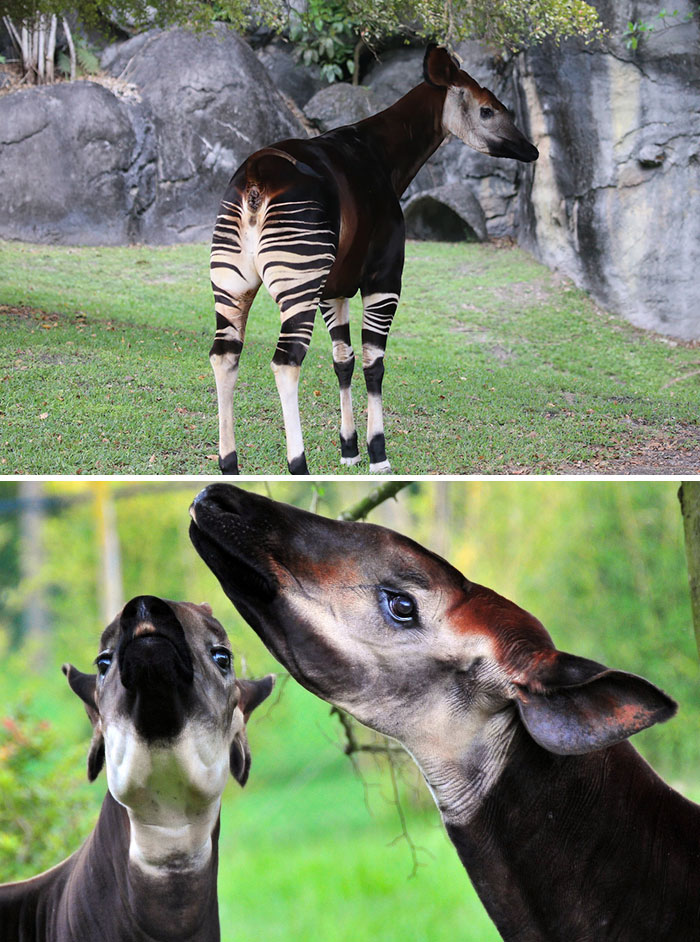
This mammal is native to the Democratic Republic of the Congo in Central Africa. Despite the zebra-like stripes, it is actually more closely related to giraffes. Okapi’s coat is a chocolate to reddish brown, much in contrast with the white horizontal stripes and rings on the legs and white ankles.
Snub-Nosed Monkey (Genus: Rhinopithecus) Asia
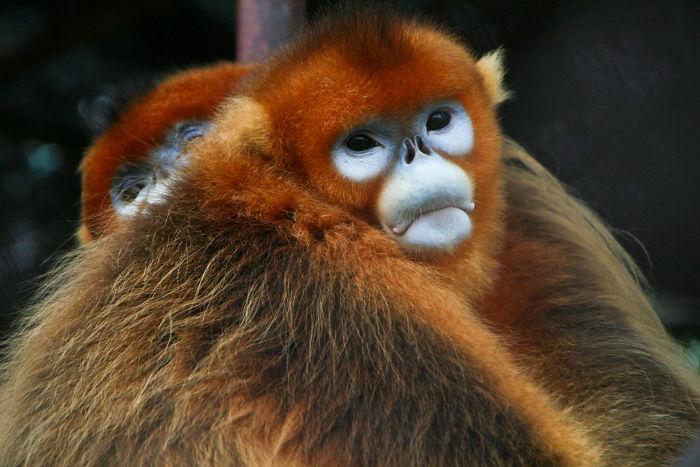
Snub-nosed Monkeys are a group of Old World monkeys and make up the entirety of the genus Rhinopithecus. The genus is rare and needs much more research. Wikipedia
Axolotl (Genus: Ambystoma) Mexico

Found exclusively in the lake complex of Xochimilco near Mexico City, Axolotls differ from most other salamanders in that they live permanently in water. It is often mistaken for a fish, but is actually an amphibian.
Australian Wombats (Genus: Vombatus)
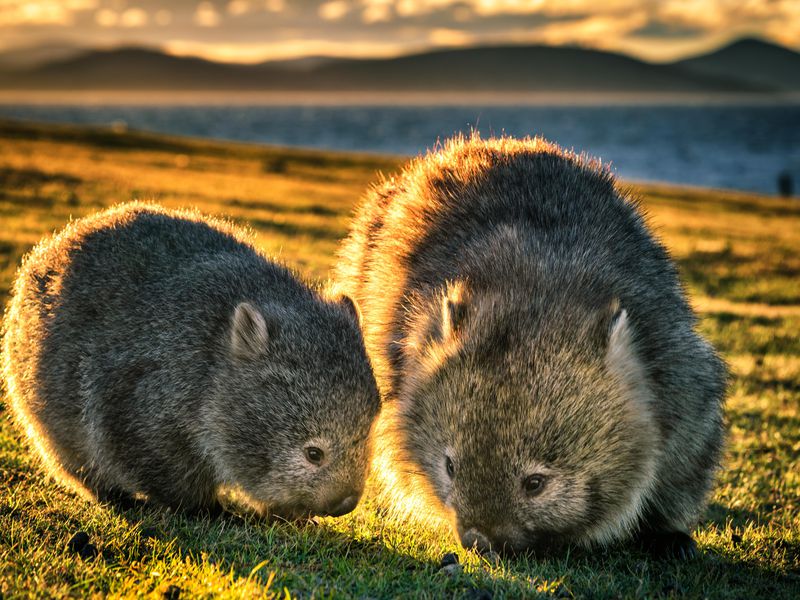
Wombats are short-legged, muscular quadrupedal marsupials that are native to Australia. They are about 1 m in length with small, stubby tails and weigh between 20 and 35 kg. There are three extant species and they are all members of the family Vombatidae.
Markhor (Genus: Capra) Central Asia
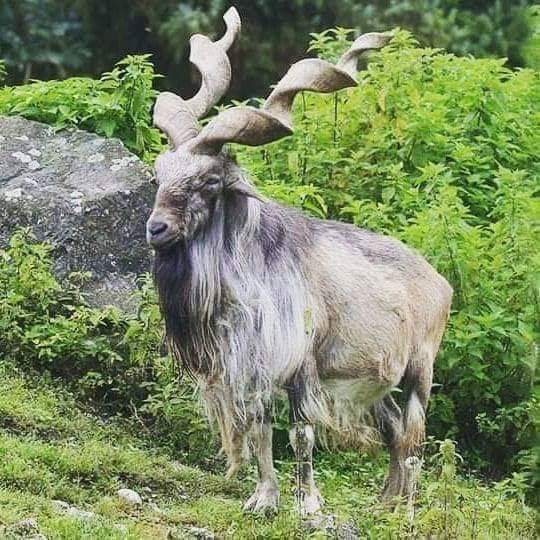
The Markhor, is a large Capra species native to Central Asia, Karakoram and the Himalayas. It is listed on the IUCN Red List as Near Threatened since 2015.
Red Lipped Batfish (Genus: Ogcocephalus) Galpagos
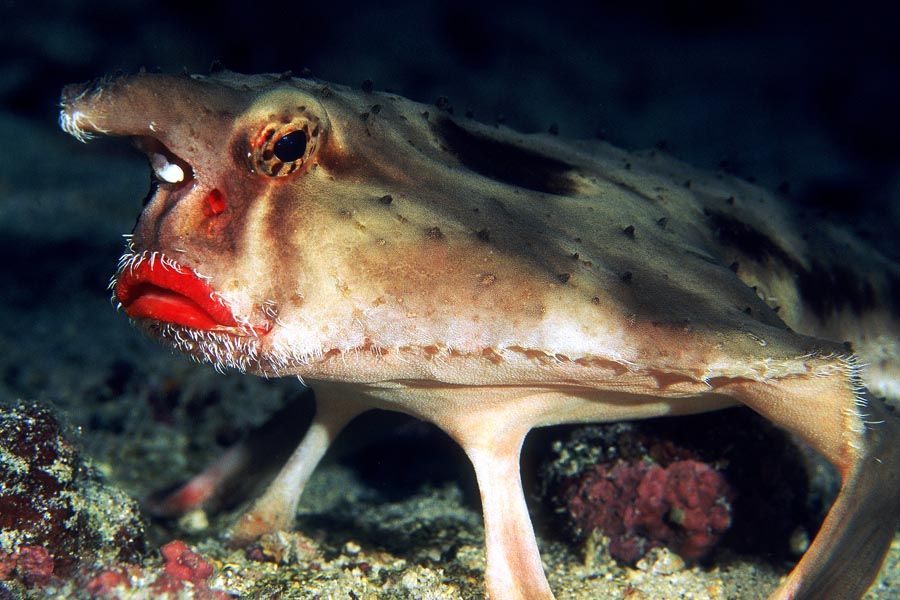
The Red-Lipped Batfish or Galapagos batfish is a fish of unusual morphology found around the Galapagos Islands and off Peru.
Narwal (Genus: Monodon Linnaeus) Artic

The Narwhal is a medium-sized toothed whale that possesses a large “tusk” from a protruding canine tooth. It lives year-round in the Arctic waters around Greenland, Canada, and Russia.
Oriental Pied Hornbill (Genus : Antracoceros) Singapore

The Oriental Pied Hornbill is an Indo-Malayan pied hornbill, a large canopy-dwelling bird belonging to the family Bucerotidae.
Dumbo Octopus (Genus: Grimpoteuthis) All Over The World

The Dumbo octopus is the deepest-living genus of all known octopuses. It lives at least 13,100 feet below the surface. The largest Dumbo octopus ever recorded was 5 feet 10 inches long and weighed 13 pounds.
Saiga Antelope (Genus: Saiga) Russia, Kazakhstan
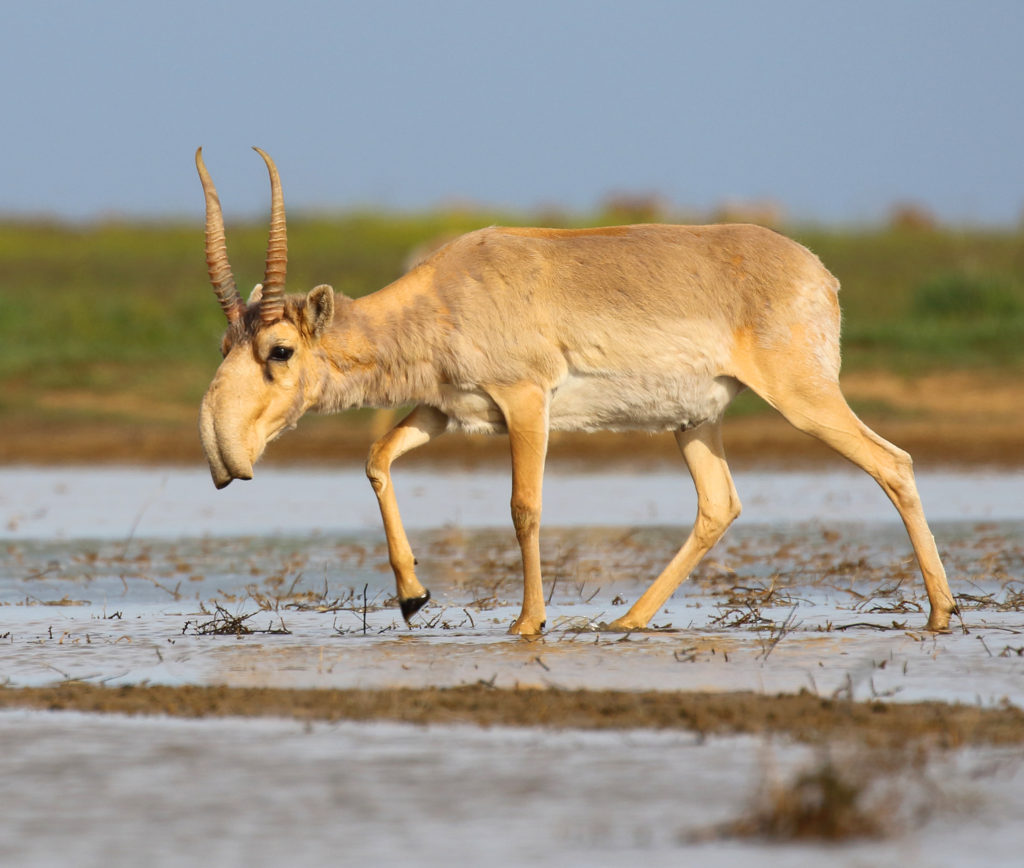
The Saiga Antelope, is a critically endangered antelope found in Russia, Kazahkstan, Uzbekistan, and Turkmenistan.
Japanese Spider Crab (Genus: Macrocheira) Japan
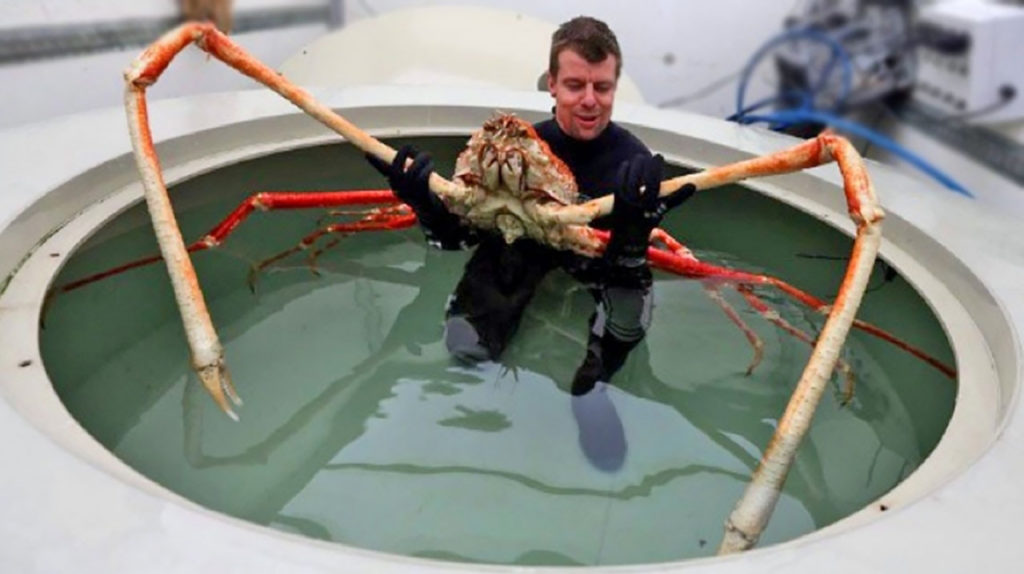
The Japanese Spider Crab is a species of marine crab that lives in the waters around Japan. It has the largest leg span of any arthropod.
Canadian Lynx (Genus: Lynxes) Canada, US
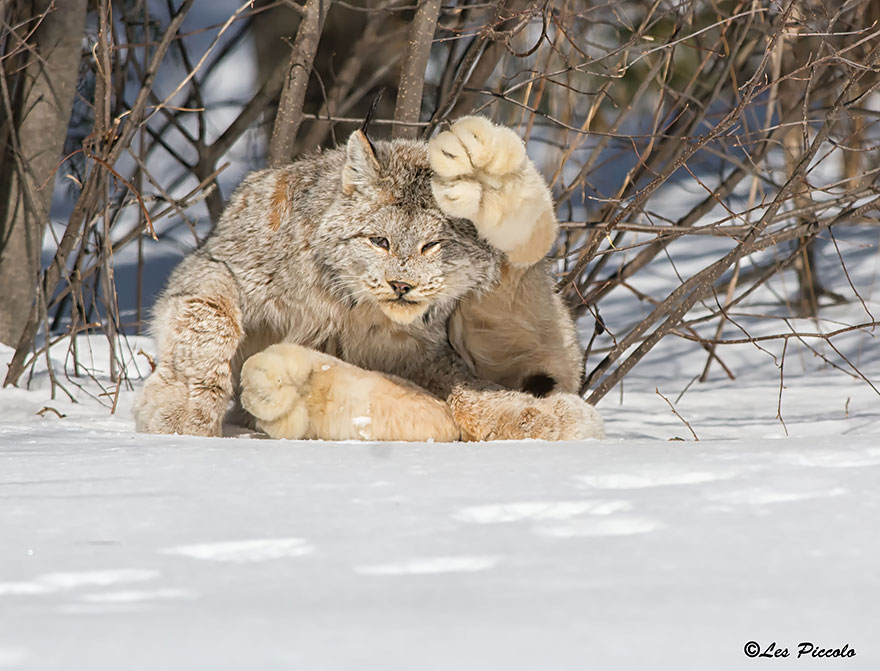
The Canada lynx is a medium-sized North American cat that ranges across Alaska, Canada and many of the contiguous United States. It is characterized by its long, dense fur, triangular ears with black tufts at the tips, and broad, snowshoe-like paws. Wikipedia
Gerenuk (Genus: Litocranius) Africa
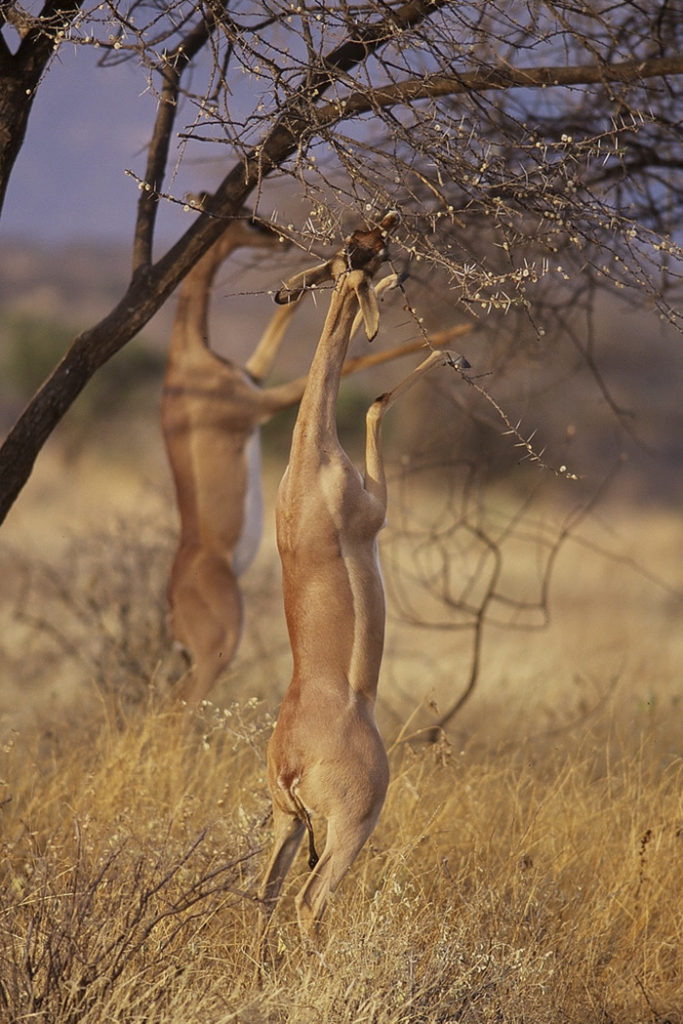
The Gerenuk, also known as the giraffe gazelle, is a long-necked antelope found in the Horn of Africa and the drier parts of East Africa. The sole member of the genus Litocranius, the gerenuk was first described by the naturalist Victor Brooke in 1879.
Halitrephes Jelly (Genus: halitrephes)
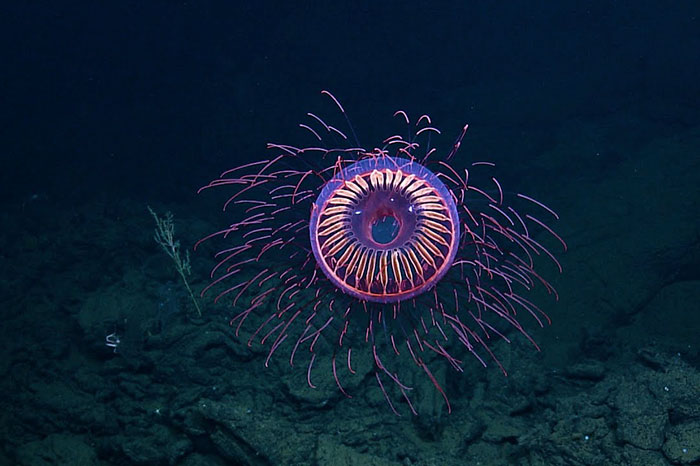
Halitrephes maasi, commonly known on the internet as the firework jellyfish. The most recent account of the jelly has been found at a depth of 4,000-5,000 feet near the Revillagigedo Archipelago off Baja, California Wikipedia
Pink Fairy Armadillo Central Argentina

The Pink Fairy Armadillo or pichiciego is the smallest species of armadillo, first described by Richard Harlan in 1825. This solitary, desert-adapted animal is endemic to central Argentina
Honduran White Bat (Genus: ectophylla) South America
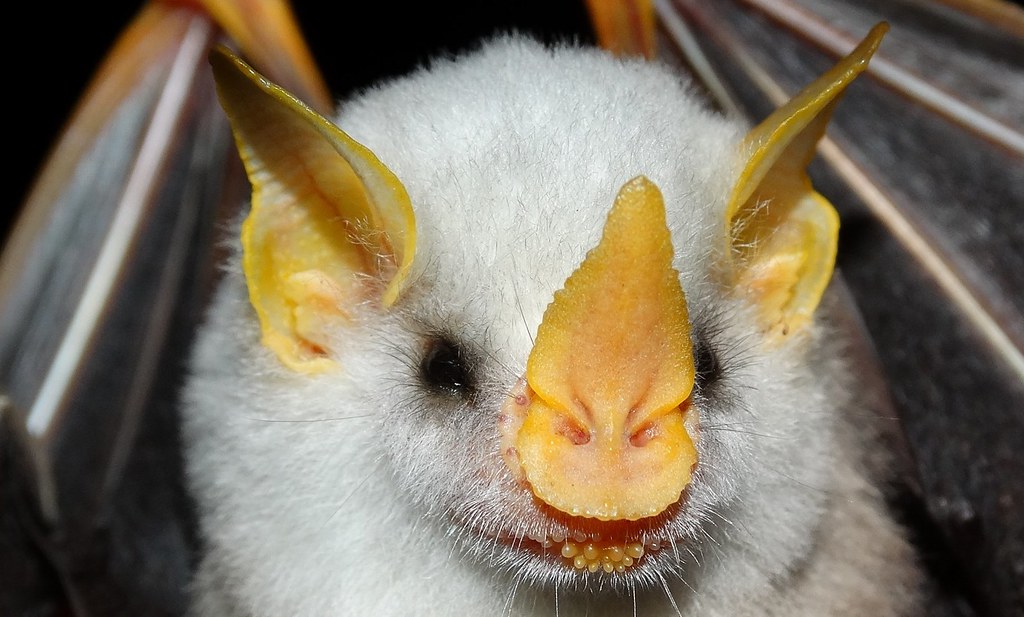
The Honduran White Bat is a highly unique species of bat. They are one of only two known species of white bats on earth. This unique animal is endemic to Costa Rica, Nicaragua, Honduras, and parts of Panama.
Glass Frog South America (Genus: hyalinobachium fleischmanni) South America
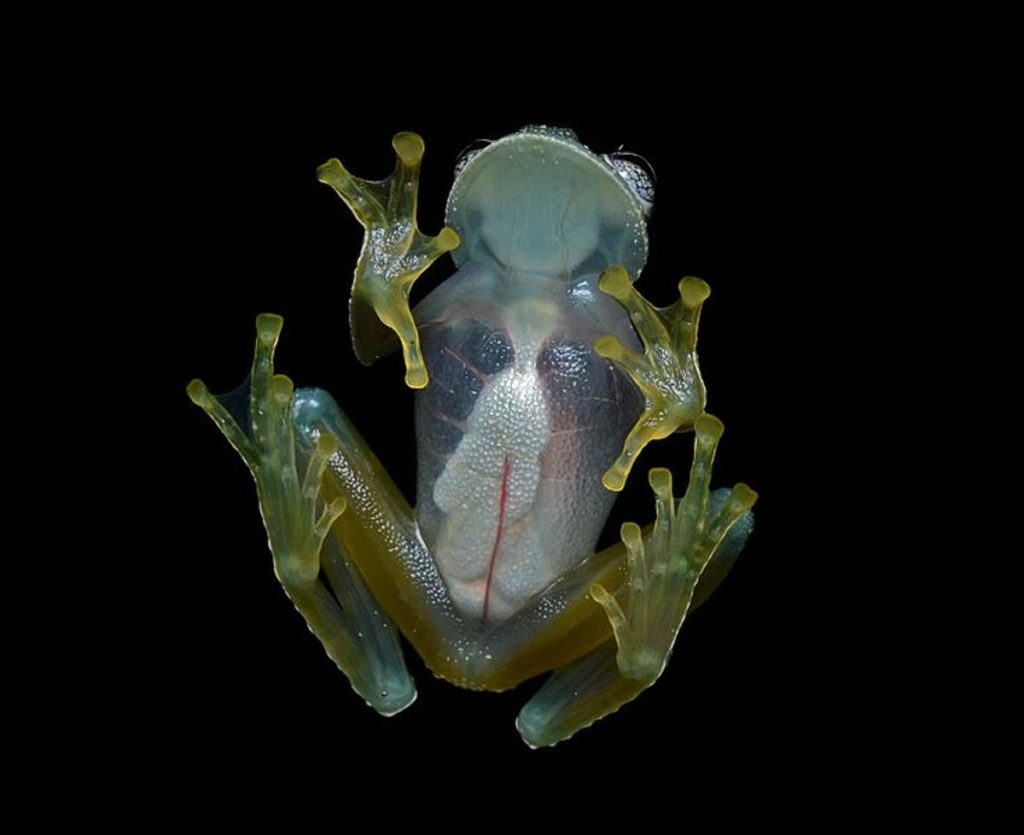
Found in South America, the glass frog is a family of amphibians with some specimens exhibiting an outstanding feature — transparent abdomens.
Glowworms (Genus:) New Zealand
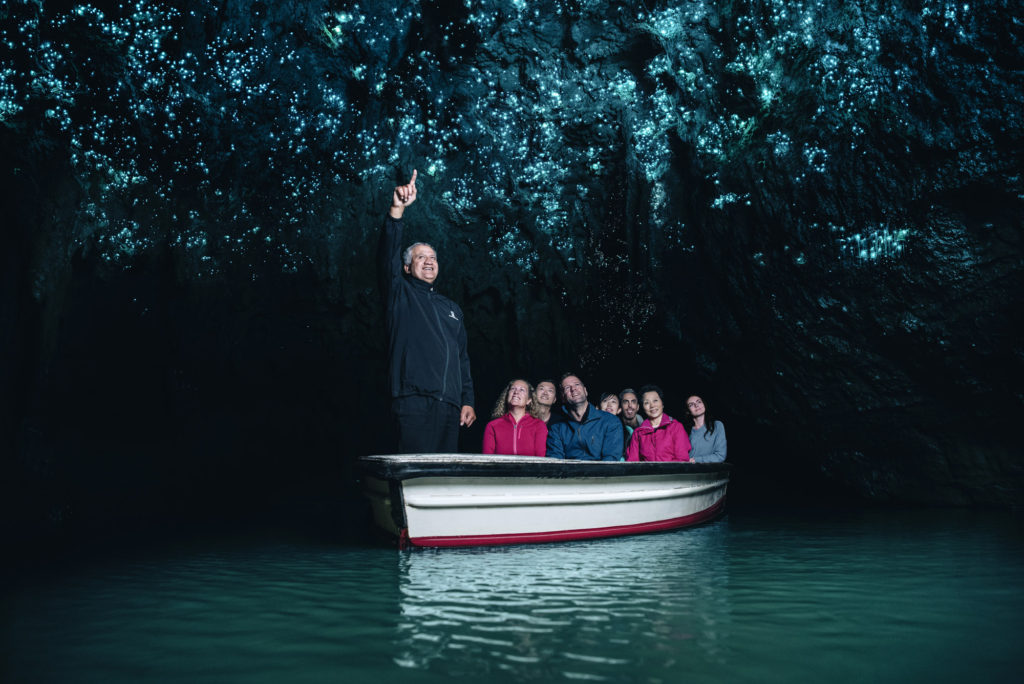
The Glowworm (arachnocampa luminosa) is the common name for various groups of insect larvae that glow through bioluminescence.
Amazing Fact :
About 10 years ago, two scientists decided to estimate the total number of birds on the planet. The number they came up with was 200 to 400 billion individual birds. Compared to 5 billion people, this amounts to about 40 to 60 birds per person
But ask the animals, and they will teach you, or the birds in the sky, and they will tell you; or speak to the earth, and it will teach you, or let the fish in the sea inform you. Which of all these does not know that the hand of the Lord has done this ?
Job 12:7-9